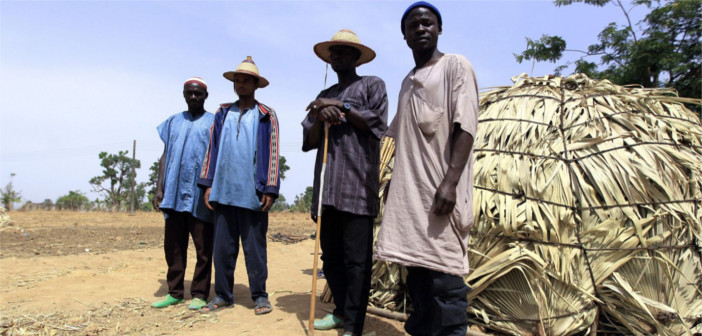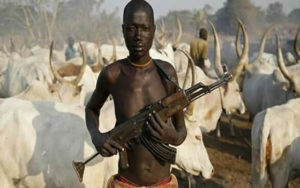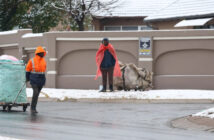Nigerian government sources revealed fresh initiatives to settle Fulani cattle herdsmen in private ranches across the country as part of a new plan to address the incessant armed clashes between the herders and local farming communities.
It will be recall that Fulani herdsmen have been involved in deadly clashes with farming communities across the country with so many dead.
Without much consultation and in other to resolve the crisis, the government proposed an ill-fated grazing bill that will grant herdsmen the right of way across farm; this has been widely rejected by numerous society organisations.
In a bid to resolve the matter, it appears that the government has accepted that herdsmen should keep their cattle in private ranches. Agriculture and rural development minister Chief Audu Ogbeh, revealed this yesterday when President Muhammadu Buhari received the chief executive of Dutch company Friesland Campina, Roelf Joosten, at State House, Abuja.
In a related development last week, President Buhari cautioned that his administration would not condone acts of banditry and criminality under any guise, adding that he had mandated the security agencies to deal decisively with perpetrators of clashes between farmers and herdsmen.
To address the problem, Chief Ogbeh also disclosed that special flasks, which can preserve raw milk for up to six hours, would soon be made available, to enable cattle farmers get the product to dairies in good state.
In his address, President Buhari decried the culture of waste in the country due to lack of means of preservation of agricultural products. He lamented the situation in which cattle farmers throw away milk from their animals because of lack of means of preserving and processing the product.
President Buhari said: “We have failed to develop our assets on a permanent basis. This, we are determined to work on.”
He urged Friesland Campina, in its collaboration with Nigeria, to educate cattle farmers that quality matters more than quantity and to help them organise themselves into cooperatives for better business activities. Mr Joosten disclosed that the 145-year-old Friesland Campina was a cooperative owned by 19,000 farmers and that it began business in Nigeria in 1973 as Friesland Campina Wamco Nigeria.
He said the company was interested in partnering with the federal government to build a healthier populace through better nutrition, collaborate in the school feeding programme and promote dairy development in the country.





